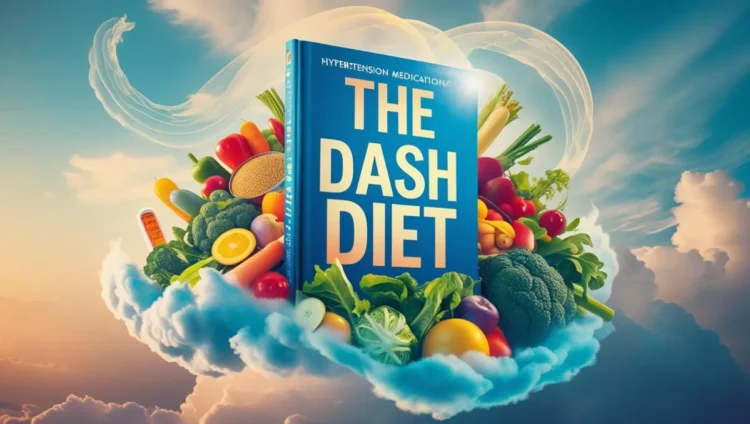Dietary Approaches to Stop Hypertension (DASH)
Hypertension affects millions worldwide, but you can take control of your blood pressure through smart dietary choices. The DASH (Dietary Approaches to Stop Hypertension) diet offers you a scientifically proven way to lower your blood pressure by up to 11 points. This eating plan emphasises foods rich in potassium, calcium, and magnesium while reducing sodium intake to 2,300mg or less per day. By incorporating plenty of fruits, vegetables, whole grains, and lean proteins into your meals, you’ll not only manage your blood pressure but also decrease your risk of heart disease, stroke, and diabetes. Your journey to better health starts with understanding this effective dietary approach.
Key Takeaways:
-
The DASH diet emphasises consuming fruits, vegetables, whole grains, and low-fat dairy while limiting sodium intake to 2,300mg (or 1,500mg for stronger results) per day
-
Multiple studies show the diet can lower blood pressure within weeks, with hypertensive individuals experiencing significant reductions of 11.4/5.5 mm Hg (systolic/diastolic)
-
Beyond blood pressure management, the diet helps reduce risks of heart disease, certain cancers, metabolic syndrome, and kidney stones
-
The eating plan is flexible and sustainable, not requiring special foods or complete elimination of treats, making it easier to maintain long-term
-
Gradual implementation through small dietary changes, focus on whole foods, and regular label reading for sodium content are imperative for success
Overview of the DASH Diet
A scientifically-proven eating plan, the DASH (Dietary Approaches to Stop Hypertension) diet focuses on consuming nutrient-rich foods while limiting sodium intake. Your daily menu should include plenty of fruits, vegetables, whole grains, and low-fat dairy products, while reducing saturated fats and added sugars. This balanced approach helps you maintain healthy blood pressure levels and supports overall cardiovascular health.
Purpose and Development
Overview of the DASH diet’s creation stems from research sponsored by the National Heart, Lung, and Blood Institute. Your health benefits from this eating plan, which was specifically designed to lower blood pressure naturally through dietary changes. The research demonstrated that participants could reduce their blood pressure by following this diet, often seeing results within just a few weeks.
Recognition and Recommendations
About the DASH diet’s acclaim, you should know it has been ranked as the #1 diet for heart health for 14 consecutive years by U.S. News & World Report. Your healthcare providers widely recommend this eating plan, as it’s endorsed by major organisations including the American Heart Association and the USDA.
A key feature of your DASH diet journey involves following specific daily servings: 6-8 servings of whole grains, 4-5 servings each of fruits and vegetables, and 2-3 servings of low-fat dairy. These guidelines help you maintain a balanced nutrient intake while keeping your sodium consumption between 1,500-2,300 mg per day, which significantly reduces blood pressure risks.
Core Principles of the DASH Diet
Assuming you want to follow the DASH diet effectively, you’ll need to understand its fundamental principles. The diet emphasizes consuming nutrient-rich whole foods while limiting sodium intake. Your daily menu should include 6-8 servings of whole grains, 4-5 servings each of fruits and vegetables, and 2-3 servings of low-fat dairy. The plan also recommends reducing saturated fats, added sugars, and red meat consumption.
![]()
Focus on Nutrient-Dense Foods
One of your primary goals should be incorporating foods rich in potassium, magnesium, calcium, and fiber. Your shopping cart should prioritise colourful vegetables, fresh fruits, whole grains, and lean proteins. These nutrients work together to help lower your blood pressure naturally and improve your overall cardiovascular health.
Sodium Reduction Strategies
Beside managing portion sizes, reducing your sodium intake is imperative for blood pressure control. You should aim to limit your daily sodium intake to 2,300 mg or less, with better results achieved at 1,500 mg. Reading food labels and choosing fresh over processed foods can help you meet these targets.
Foods that typically contain high sodium levels include processed meats, canned soups, frozen dinners, and packaged snacks. You can reduce your sodium intake by cooking at home more often, using herbs and spices instead of salt, and choosing fresh or frozen vegetables over canned ones. When dining out, request that your meals be prepared with minimal salt.
Dietary Guidelines and Recommendations
Unlike traditional diets, the DASH eating plan focuses on a comprehensive approach to managing hypertension, as detailed in the DASH Diet To Stop Hypertension. Your daily intake should prioritize nutrient-rich foods like fruits, vegetables, whole grains, and low-fat dairy. This evidence-based approach has shown to reduce blood pressure by up to 11 mm Hg systolic when combined with reduced sodium intake.
Specific Serving Sizes
Between your daily meals, you should aim to include 6-8 servings of whole grains, 4-5 servings each of fruits and vegetables, and 2-3 servings of low-fat dairy products. Your protein intake should focus on lean sources, limiting meat consumption to 6 ounces or less per day, while incorporating 4-5 weekly servings of nuts, seeds, and legumes.
Limitation of Certain Foods
Any foods high in saturated fats, cholesterol, and sodium should be carefully restricted in your diet. You should limit your sodium intake to no more than 2,300 mg daily, with better results achieved at 1,500 mg. Processed foods, red meat, and full-fat dairy products should be minimized in your meal plan.
Further attention should be paid to avoiding foods that can sabotage your blood pressure management efforts. You should be particularly mindful of hidden sodium in processed foods, which can account for up to 70% of your daily sodium intake. Sugary beverages, excessive alcohol, and foods high in added sugars should also be limited as they can interfere with your blood pressure management goals.
Scientific Evidence Supporting the DASH Diet
Your confidence in the DASH diet can be backed by extensive clinical research spanning decades. The landmark DASH trial demonstrated that this dietary approach could lower blood pressure by up to 11.4/5.5 mm Hg in hypertensive patients. These findings have been consistently validated through numerous studies, making the DASH diet one of the most well-researched dietary interventions for hypertension management.
Impact on Blood Pressure
On average, you can expect to see significant blood pressure improvements within just two weeks of following the DASH diet. When combined with reduced sodium intake (1,500 mg/day), the diet has shown to decrease blood pressure by an average of 8.9/4.5 mm Hg, which is comparable to the effects of some blood pressure medications.
Associated Health Benefits
On top of blood pressure control, your adherence to the DASH diet can provide multiple health advantages. Research indicates reduced risks of heart disease, stroke, and certain cancers. The diet has also shown promising results in lowering cholesterol levels and preventing type 2 diabetes.
Scientific studies have further revealed that following the DASH diet can help you maintain better bone density, reduce inflammation, and even protect against kidney stones. The diet’s emphasis on whole foods and balanced nutrition makes it particularly effective for long-term weight management and overall health maintenance.
Practical Implementation of the DASH Diet
Despite its proven effectiveness, implementing the DASH diet doesn’t have to be overwhelming. Your journey to better health can start with simple adjustments to your current eating habits. Following Managing Blood Pressure with a Heart-Healthy Diet guidelines can help you achieve significant blood pressure reductions within weeks. The key is to focus on gradual changes while maintaining consistency in your dietary choices.
Tips for Gradual Changes
Gradual modifications to your diet are more sustainable than drastic changes. Here are imperative steps:
-
Replace one refined grain with whole grain daily
-
Add one extra serving of vegetables to your meals
-
Switch to low-fat dairy products
-
Reduce sodium intake by 500mg weekly
After following these steps consistently, you’ll find the DASH diet becoming your natural way of eating.
Meal Planning and Preparation
About 80% of your success with the DASH diet depends on proper meal planning. Your weekly menu should include 4-5 servings of vegetables, 4-5 servings of fruits, and 2-3 servings of low-fat dairy daily.
To make your meal planning more effective, focus on preparing meals at home where you can control ingredients and sodium levels. Your shopping list should prioritise fresh produce, whole grains, and lean proteins while limiting processed foods that typically contain hidden sodium and unhealthy fats.
Common Misconceptions and Considerations
Not all aspects of the DASH diet are commonly understood. While many believe it’s solely about restricting salt intake, the diet encompasses a broader approach to healthy eating. You should know that this eating plan doesn’t require completely eliminating your favorite foods or following overly strict guidelines. Instead, it emphasizes balance and moderation while promoting heart-healthy choices.
Sodium Intake Limitations
Below the standard recommendation of 2,300 mg of sodium per day, you might wonder about going even lower. While the DASH-Sodium study showed benefits at 1,500 mg daily, you should be cautious about extremely low sodium intake. Going below 1,500 mg could potentially increase certain health risks, including insulin resistance and heart disease in some individuals.
Broader Health Benefits
Above and beyond blood pressure control, your adherence to the DASH diet can yield multiple health benefits. You can experience reduced risk of certain cancers, heart disease, and stroke. The diet has also shown promising results in managing conditions like gout and kidney stones.
Even more encouraging for your overall health, following the DASH diet can support weight management and improve your metabolic health. Research indicates that you may experience better cognitive function, enhanced gut health, and reduced inflammation. These benefits make the diet particularly valuable for your long-term health management strategy.
Final Words
Upon reflecting on the DASH diet’s principles and benefits, you can see how this evidence-based eating plan offers a practical path to managing your blood pressure and improving your overall health. By making mindful choices about your food selections and gradually incorporating the DASH guidelines into your daily routine, you can take control of your cardiovascular health. Whether you’re dealing with hypertension or simply seeking a balanced approach to eating, the DASH diet provides you with a flexible, sustainable framework that can become a natural part of your lifestyle.
FAQ
Q: What specific foods does the DASH diet recommend eating regularly?
A: The DASH diet emphasises consuming fruits, vegetables, whole grains, and low-fat dairy products daily. It recommends 6-8 servings of grains, 4-5 servings each of vegetables and fruits, and 2-3 servings of low-fat dairy products daily. The plan also includes moderate amounts of lean meats, fish, poultry, beans, and nuts while limiting foods high in saturated fats and sugars.
Q: How quickly can I expect to see results from following the DASH diet?
A: Research shows that people following the DASH diet typically experience measurable blood pressure reductions within 2-3 weeks. The original DASH study demonstrated an average reduction of 5.5/3.0 mm Hg in blood pressure, with even greater reductions (11.4/5.5 mm Hg) observed in participants who had hypertension.
Q: Can I follow the DASH diet if I’m vegetarian or vegan?
A: Yes, the DASH diet can be adapted for vegetarian and vegan lifestyles. Plant-based protein sources like legumes, nuts, and seeds can replace meat products. The diet’s emphasis on fruits, vegetables, and whole grains aligns well with vegetarian eating patterns. Vegans can substitute dairy with fortified plant-based alternatives to maintain calcium intake.
Q: What are the recommended sodium limits on the DASH diet?
A: The standard DASH diet recommends limiting sodium intake to 2,300 milligrams per day. For stronger blood pressure-lowering effects, there’s a lower-sodium version that restricts intake to 1,500 milligrams daily. These limits include all sources of sodium, including processed foods, table salt, and naturally occurring sodium in foods.
Q: Besides lowering blood pressure, what other health benefits does the DASH diet offer?
A: The DASH diet provides multiple health benefits beyond blood pressure control. It has been shown to reduce the risk of heart disease, lower LDL cholesterol levels, and decrease the likelihood of developing certain cancers, including breast and colorectal cancer. The diet also helps prevent kidney stones, reduces the risk of diabetes, and supports healthy weight management.


























